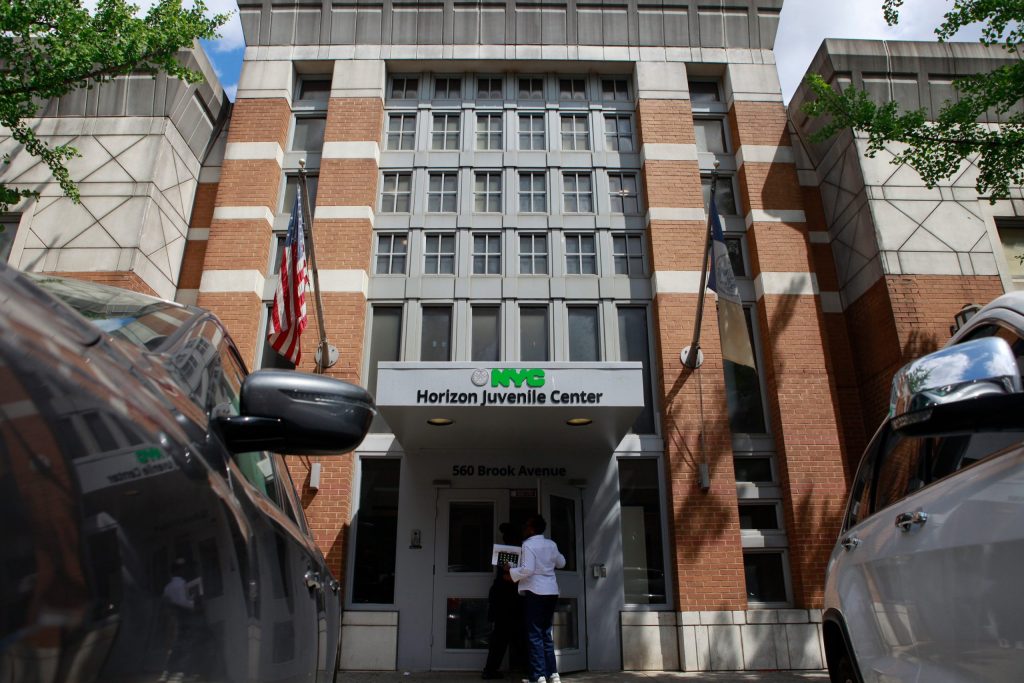The city’s two juvenile detention centers are plagued with chronic absenteeism, a massive spike in contraband, and a failure to properly report thousands of serious incidents of violence and abuse, according to a new state audit.
The 46-page review also found that only 53% of the young people surveyed got an initial interview and assessment to determine their basic needs as required within 24-hours by staff at Horizon Juvenile Center in The Bronx and Crossroads Juvenile Center in Brooklyn.
“The New York City Administration for Children’s Services has to improve its operations and oversight at Horizon and Crossroads juvenile centers,” state Comptroller Thomas DiNapoli said in a statement.
The report spans more than five years, from October 2018 through December 2023, and highlights impacts of the pandemic.
A spokesperson for ACS defended the agency, noting that the audit covers a period beginning before Mayor Eric Adams took over and appointed Jess Dannhauser as ACS commissioner.
“ACS has achieved encouraging improvements in safety and security, while demonstrating sustained progress with regard to education, program engagement and the delivery of supportive services to youth in detention,” said agency spokesperson Marisa Kaufman.
The state audit comes exactly eight years after state lawmakers passed the Raise the Age Law to transition 16- and 17-year-olds from the adult to juvenile criminal justice system.
In New York City, that meant transferring them from Department of Correction-run adult housing units on Rikers Island to the two secure detention centers operated by ACS.
But the department has struggled to staff and operate the centers as the number of young people facing criminal charges has ballooned over the past several years, according to a series of oversight reports and court filings.
In October 2024 the city’s Department of Investigations concluded that ACS’s point-based system to reward and punish the behavior of incarcerated youths, known as a behavioral management tool, had failed to adequately deter violence and contraband smuggling.
And Gothamist reported in November 2023 that, due to overcrowding, some teens were forced to sleep on the ground in open space housing units.
The Legal Aid Society, the city’s largest public defender organization, said some of their clients are currently still sleeping in hallways, classrooms, and some even on the floor or on chairs.
“This is unacceptable and has made the challenges of providing needed services to this population even greater,” LAS said in a statement.
Staff Not Following Rules
On Thursday, the state auditors also highlighted a spike in contraband such as razors, scalpels, drugs and cellphones.
“Contraband incidents increased more than tenfold, from 62 cases in 2019 to 706 cases in 2023,” according to a press release announcing the report.
ACS told auditors that the increase in found items was due to staff conducting better and more searches of people coming into the facilities and teens inside.
But during a visit to Horizon, auditors saw an ACS official walk into the facility with two cell phones despite rules banning them, according to the report.
“No one directed the individual to take the phones back to their locker,” the report said.
In response to the audit, ACS said the agency has taken steps to prevent the flow of contraband. That includes the expansion of the ACS police, enhanced search procedures for youth leaving and returning to the facilities, and additional magnetometers in the admissions area, according to ACS.
The audit also criticized the agency for failing to make sure all the eligible youths in their custody attend school.
“Both facilities exhibited chronic absenteeism levels across all educational programs and ages, ranging from 13-73% days absent,” the report said.
People who regularly attend classes while in juvenile detention are less likely to reoffend, according to the U.S. Department of Justice’s Office of Juvenile Justice.
“Not receiving an appropriate education places these youth at a disadvantage when they return to their communities,” the state audit said.
ACS blamed the high absenteeism rates on detainees who refuse to attend, court appearances, and a shortage of staff. The agency also said staff gave detainees who refused to attend a packet of educational material to complete.
“However, we have no assurance these packets are consistently completed and reviewed,” the audit said.
The report also criticized ACS for failing to report all serious incidents to the state’s Office of Children and Family Services as required by law.
At the same time, ACS recorded the incidents in its own database known as Group Oriented Analysis Leadership Strategies (GOALS).
State auditors said that 37% of 9,693 of unique incidents were not reported to the state. ACS was also slow when it did report serious incents, the report said.
“As the audit notes, incarceration presents an opportunity to re-engage youth who may have become disengaged from school,” Legal Aid said in a statement.
“Failing to even get these children to school deprives these children of the education they so desperately need and failing to even provide them with an assigned room or bed increases the chaotic and traumatic nature of their experience in detention.”
Our nonprofit newsroom relies on donations from readers to sustain our local reporting and keep it free for all New Yorkers. Donate to THE CITY today.
The post City’s Youth Lockups Are Failing Vulnerable Detainees, State Audit Finds appeared first on THE CITY – NYC News.

